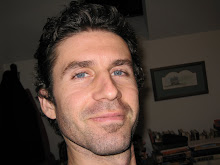The Valley of Vision & the Keys to The Kingdom
If you think about it, it is quite a bold act to change the image of God. Yet if you think about this conflict and reconstruction a little more, it just makes sense. We never get it totally right anyway.
The readings this week started me thinking:
Do we shatter and re-order our understanding of the Roman Catholic Church? If we do it for God, I think we should. Why do we believe the Church is perfect?
In the Gospel reading today, we hear the often cited foundational story of the Roman Church on the Rock of St. Peter.
In Matthew 16:18 Christ says, "You are Petros (Peter), and on this Petra (rock) I will build my church..." In Matthew 16:23, Christ tells the same Petra, "Get behind me, Satan! You are a stumbling block to me; for you are setting your mind not on divine things but on human things."
The same criticism can be leveled at the Church hierarchy of our day and days past. Church leadership is human. And like the apostles in the Gospel of Matthew, they repeatedly wax and wane in their understanding of Who Christ Is and what his message is. It isn't for a lack of trying though.
At Cesearea Philipi when Peter nails it, it wasn't out of any individual knowledge. "For flesh and blood has not revealed this to you, but my Father in heaven (Mt. 16:17) God reveals this wisdom to Peter in a moment and Peter speaks before he could filter it. "This" statement of recognition through grace, is "this" Rock Christ will build his Church on. It wasn't the person of Peter or any persons to follow, but those moments of unfiltered revelation and action that will constantly require re-imaging of God. Peter's own understanding of Christ had to be re-ordered immediately after his shining moment at Cesaerea Philipi when he goes from Church rock to stumbling bloc in a few short verses.
Christ promises to give him keys to the kingdom. Peter, like us, probably thought in terms of physical objects or symbols of possession rather than key principles that open doors between heaven and earth. The first thing Christ shows Peter after promising him the keys is the path of self denial and the Paschal Mystery. Peter didn't get it.
The human filter was back on. This is the first key to kingdom and the first act of our Church. I wonder how did Peter made sense of that juxtaposition - Church rock to stumbling block - in the eyes of God. How did he change his understanding of Christ and Christ's vision for the Church?

